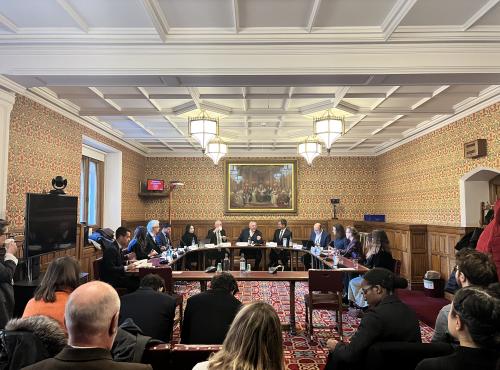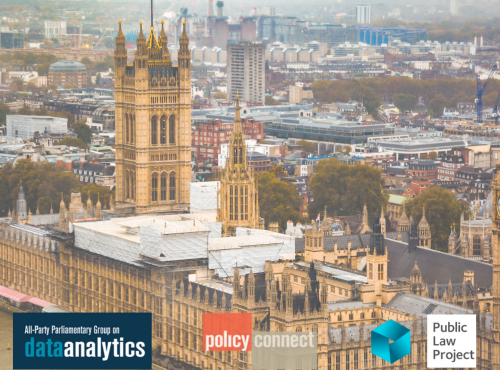How data is responding to COVID-19
The All-Party Parliamentary Group for Data Analytics (APGDA) was delighted to host a remote panel discussion on Thursday 21st May 2020. The event brouhgt together a rage of experts to discuss how data has been responding to and learning from the challenges presented by the COVID-19 pandemic.
The discussion was chaired by Daniel Zeichner MP, Chair of the APGDA, and included responses by; Dr Natalie Banner of the Wellcome Trust. Professor Ross Anderson of the University of Cambridge, Gavin Freeguard of the Institute for Government, and Tom Forth of the Open Data Institute Leeds,
Dr Natalie Banner began by providing an overview of the multitude of issues and uses of medical data, both as part of the industry response to COVID-19, as well as across other areas of the economy. She noted the biases that form a common element to all uses of data by public bodies, as well as the impact of ‘trace and trace’ contract apps on public discussions. She added that public concerns were not entirely focused on notions of privacy and consent - but also around areas such as protecting public safety, as well as the effectiveness. She concluded by noting how important technology is in looking forward to new threats and opportunities, as well as the Wellcome Trust’s recent research into understanding patient data.
Professor Ross Anderson, opened by noting the growing relationship between public bodies and organisations using medical data when they do not have rights to use it, a common problem across many areas public policy, especially with regard to medical data. He provided a sceptical view of the effectiveness of the proposed NHS track-and-trace app, as well as such programmes more generally. Examples from aboard demonstate a lack of effective tracing both using GPS and Bluetooth technology, as well as providing a large number of false negatives and positives. Professor Anderson said that the app - therefore - was a case of ‘Do Somethingitis’, action is demanded, and doing anything - regardless of effectiveness - is seen by policy makers as a superior option to doing nothing at all.
Gavin Freeguard began by explaining how the government was using data more effectively across Whitehall. Outside the contract tracing app, government has had to respond rapidly to the COVID-19 crisis, establishing new mechanisms very rapidly, especially the economic models for HM Treasury, and the new furlough and business support being applied by HMRC. Moving forwards - there was also grounds for the government to - in a sense - “rewire the state” to meet the challenges of future pandemics and similar crises. He added that the real issue government would be to decide what their philosophy for the use of data would be.
Finally, Tom Forth said that the UK had a number of strengths and failures compared with European partners with regard to the public use of data. He singled out the ONS for praise in their use of effective data and statistical sharing, and articulated the effective way in which these were expressed to official bodies, researchers and the public as a whole. Highlighting an example of government failing to use data effectively, he noted the inability for the UK to send out a nationwide text message as part of the COVID-19 response within the parameters of a National Alert System as having contributed to muddled messaging and confusion amongst members of the public.
The chair then opened the conversation to contributions from the floor. The speakers responded to a number of submitted questions regarding positive examples for the British government to emulate from abroad, the impact of public confidence on the ability of policy makers to use data effectively, and the impact of health data on other areas of the economy.
Daneil Zeichner concluded the event by thanking all the participants for their contributions to the discussion. He said that the APGDA would continue to engage with policy makers about the effective use of data by public bodies during the present crisis, as well as the Group's forthcoming research projects into data ethics.





